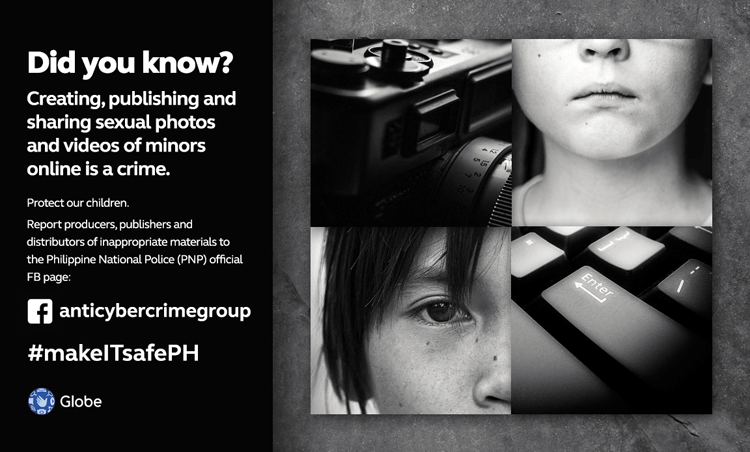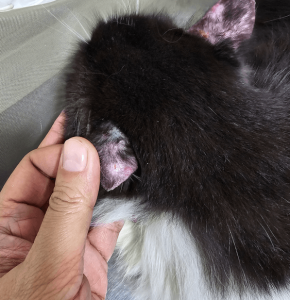
People using social media to befriend minors and get them to engaged in sexual acts or in sexual poses and then later exploit these photos — sell them. It is every parent’s nightmare. I know it’s mine. That is why I always remind my eldest who now owns a mobile phone not to add strangers as friends on social media and not to talk to strangers online. The internet is now the venue of choice for predators looking to lure minors in doing sexual acts.
But that is not the only problem and not news to us either. We always read it in online news portals, and newspapers and we see in in the news. The police arresting parents and relatives of minors being forced or groomed to engage in cybersex with foreign clients in exchange of money.
Did you know that Unicef cited the Philippines as a top global source of child pornography in its Dec 12, 2017 State of the World’s Children report entitled “Children in a Digital World”? Unicef quote from the accompanying statement: “In the Philippines, the risks to children are high, with the country being the no. 1 global source of child pornography and a hub for the livestream abuse trade.”
As a matter of fact PNP said in Oct 2017 that there is a rising number of incidents online regarding sex exploitation of minors. One example is PNP arresting two men who had been using their social media accounts to get foreign clients to engage in cybersex with children aged 8-15 in exchange for P20-30k. Can you imagine the trauma that these experiences will leave on these children?
To combat this, we all need to be vigilant not only with our own children and relatives. We need to be vigilant and report to the PNP anti cyber crime division ANY abusive practices such as producing, distributing, and sharing photos and videos online of minors engaged in sexual acts or in sexual poses.
To protect the children, the Philippines had enacted the Anti-Child Pornography Act of 2009. In 2014, the Cybercrime Law took effect where general punishable acts are considered as cybercrime if done using the computer or the internet.
Globe Telecom is also doing their part because they want to provide their customers with safe and quality content and ensure that their products such as internet services are not used for illegal activities. As part of its #playitsafe anti-piracy campaign and #makeITsafePH cybersecurity and cyberwellness campaign, Globe Telecom is also looking at global best practices in its fight against illegal sites and child pornography. They have already blocked closed to 2,500 domains and sites found to have lewd and child pornography-related content.
Let us all #MakeItSafe for our our children. Let’s be vigilant and fight child pronography.












